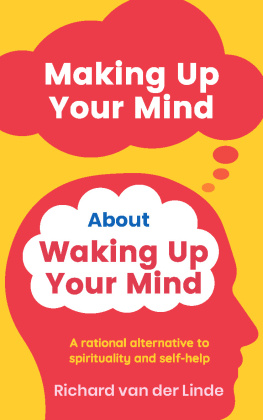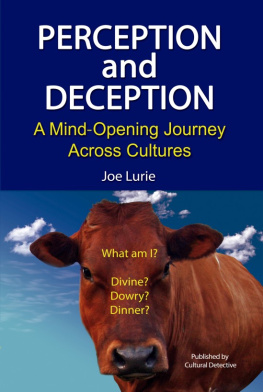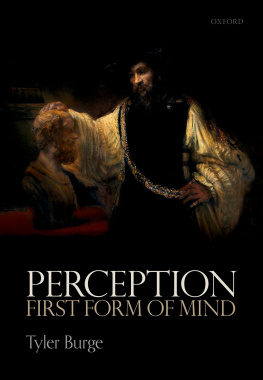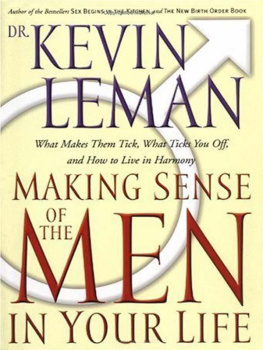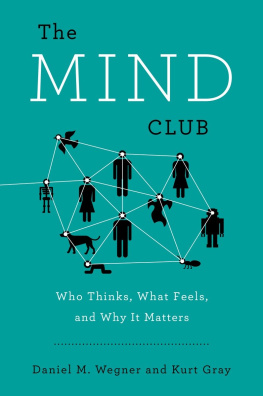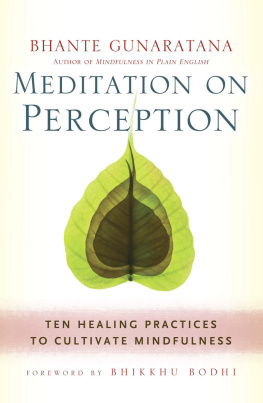Making Up Your Mind
About
Waking Up Your Mind
Making Up Your Mind
About
Waking Up Your Mind
A rational alternative to spirituality and self-help
Richard van der Linde
Copyright 2022 by Richard van der Linde
All rights reserved. This book or any portion thereof may not be reproduced or used in any manner whatsoever without the express written permission of the publisher except for the use of brief quotations in a book review.
First edition, 2022 Brave New Books
More information: www.richardvanderlinde.com
Project advisor: Frank No
Editor: Balakumar Ravichandran
Designer: Roel Minnaard
Cover picture: Michelle Hoek
Libet Experiment setup image used with permission of Jolyon Troscianko, www.jolyon.co.uk
Rubber Hand Illusion setup image used with permission of Daniele Romano
ISBN: 9 789 464 652 307
This book is not intended as medical advice, but solely as a resource for decision-making.
Readers who doubt their own capability to process this information should consult some- one they trust to assess this book for them before reading it.
Although the author and publisher have made every effort to ensure that the informa- tion in this book was correct at press time, the author and publisher do not assume and hereby disclaim any liability to any party for any loss, damage, or disruption caused by errors or omissions, whether such errors or omissions result from negligence, accident, or any other cause.
CONTENTS
INTRODUCTION
R ational people dont take things for granted. They need evidence before they can accept a claim. Without evidence, they wouldnt even bother explaining why they dismiss the claim. Or, as the late author Christopher Hitchens put it, what is asserted without evidence, can be dismissed without evidence.
That doesnt mean that you cant be rational and practical at the same time. For example, governments usually dont have a hard time finding rational, professional economists who are willing to forecast the effects of economic-policy options with models that involve all sorts of assumptions. Some even go as far as making policy recommendations.
Like with the digestion of food, dividing a large chunk of information such as the economy, or perhaps even the universe into smaller pieces can help with its digestion. Yet, such models are conceptualizations of reality and are also simplifications, as in reality there is no such thing as rounding and there are no actual delineations. In reality, everything affects everything to some degree, either directly or indirectly.
All models are wrong, but some are useful.
~ George E.P. Box (statistician)
Models of reality are by definition not entirely rational, but they can be useful nonetheless, and they certainly are often correct enough for their purpose. But while practical and useful, the modality of conceptualization could also lead to two kinds of problems, which might even affect how successful you currently are in making decisions and improving the quality of your life.
First, the conclusions from different pieces might not add up. A well-known example of this is the chasm in the field of physics: Quantum field theory holds, and theories about gravity hold, but when put together they conflict (this will be covered in one of the topics). The second kind of problem that can occur is that concepts are gradually mistaken for reality not on purpose, but in the way a chess player forgets that a certain piece shouldnt be moved when the game gradually becomes more complex. This kind of problem arises a lot among model-makers who fall in love with their models and take it to be the best source for policymaking, while their models do not account for the complex (and often irrational) behavior of people or the unpredictability of particles at the quantum level.
The point of stating these problems is not to claim that conceptualizations, models, and analyses should be replaced by some other things. On the contrary, it is merely to remind that although a model provides inputs for decision-making, in most cases it doesnt provide the solution, for the decision has to be made in the more complex real world and not in the simplified representational environment for which the model provides the best choice.
The thinkers blessing and curse
If youre struggling with making decisions, youre certainly not the only one. Its not easy to live rationally, especially since we have to make thousands of decisions a day. Most decisions are small and have low impact, but the more developed your thinking is, the better you are aware of the dependencies and implications of even the smallest decisions. In a way, life is pretty complex, and the complexity can be overwhelming.
Through technological advancements, we have almost all the information in the world at our disposal for making decisions to the extent that it could even appear as if theres no element of personal choice necessarily involved in decision-making anymore.
Whenever a decision entails making a prediction about some- thing non-mechanical, however, the element of personal choice is unavoidable. Even if we apply a framework, statistics, or a model, trust an expert, or go for the outcome of a coin toss, its a personal decision to do so.
Even if you decide to calculate everything and select the option with the best statistical odds for example, regarding what to eat every day your decisions are still based on a simplified, modeled, conceptual representation of reality.
Should you or shouldnt you invest in Bitcoin? Is it okay to take a trip to a sunny destination in winter if you need it, despite air travel conflicting with your beliefs about climate change? Should you drink milk if one study says its bad for your health, while another says its beneficial?
These are just a few examples of questions that are very hard to solve, if not impossible, with just logic. It gets even harder when you have to make bigger life decisions regarding marriage, career, or what social norms and values to live by.
Some of these bigger decisions also have implications for smaller decisions theres a hierarchy in your beliefs and principles for decision-making. When you believe in a god of a religion with scriptures, for example, decision-making usually becomes a lot easier, for the scriptures tell you how to live. Similarly, someone can categorically decide to make their life logically consistent with the latest findings in science because of an atheistic or agnostic worldview.
How much information is enough?
Its nice to have a clear framework for decision-making, but in real life many people seem to struggle with it, particularly with deciding about decision-making. How do you decide where the cutoff point for analysis of information is and what you leave to your intuition? You can always include more information, but is there perhaps a point of diminishing returns where the price of processing extra information becomes higher than the benefit from including that information in your decision? If there is such a point, youd have to decide where it lies. But without a scientific rule, how much analysis do you require before you can decide? As you see, this is rather paradoxical and is the kind of problem a mind can get hooked on looping through.
Some people avoid the question and go about living without clarity. That may work very well, but if at some point your decisions no longer lead to a satisfying life and you cant turn it around into a satisfying life again, you dont really have a choice. You might look into coaching or therapy, but how do you decide which kind there are a lot of options. Even for that decision you need to look into your more fundamental beliefs for omissions, blind spots, or perhaps even inconsistencies. Especially among avid thinkers often having analytical professions life can become quite dissatisfying as a result of overthinking and indecisiveness. One solution would be to follow the self-development motto of just follow your feeling , but that usually doesnt work for people with a propensity to live rationally.

